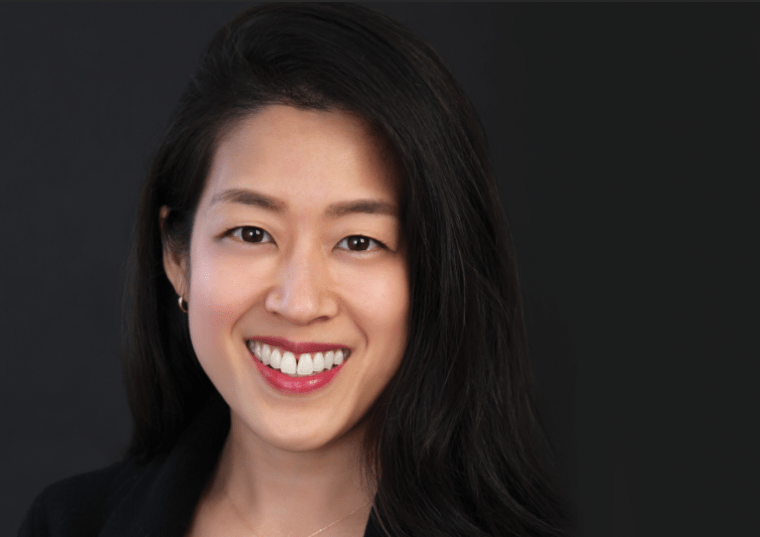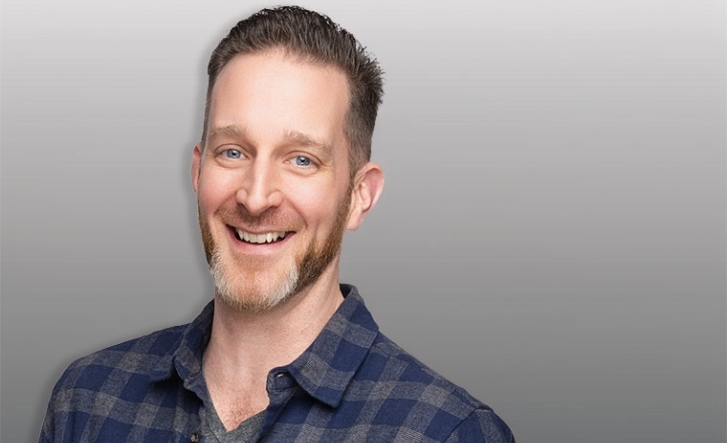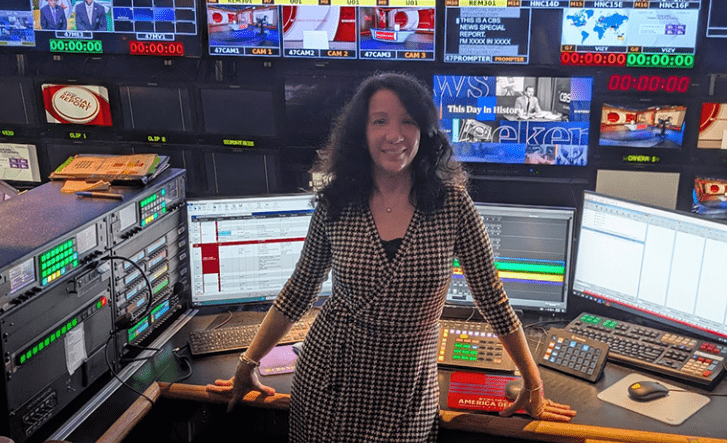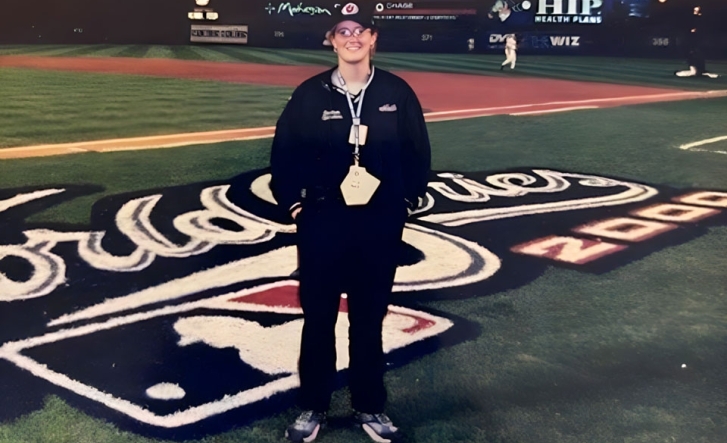Psychotherapist Develops a Mental Health Resource to Empower Asian Communities
After over a decade of working in marketing and advertising leadership roles, Diana Liao ’17GEd knew it was time for a career change. In 2012, she quit her current marketing job and began envisioning a fresh start.

“When I decided to quit my full-time marketing job, I was burned out,” Ms. Liao shared. “I had been working in all sorts of variations of marketing and advertising but hadn't found the right fit. I finally decided it was time to quit, take time off, and consider new options.”
While on sabbatical, she found inspiration in a noncredit career transition class. “We did a few assessments of our skillset and interests, and I discovered several career options that might be a good fit. Two careers that stood out for me were photography and psychotherapy.”
Career Exploration
Ms. Liao spent two years freelancing in the photography field, shooting content for major events with clients such as Amazon, A+E Networks, and FOX, and working as a photographer for New York Fashion Week. “It ultimately was something I decided not to pursue due to the lack of stability,” she admitted. “It was a hobby, and I didn’t want to turn it into my full-time career. However, it was an excellent experience as it made me realize that when I care about something, I can be motivated to do it.”
Once she realized she did not want to pursue photography, she moved back in with her family and spent a significant amount of time with her youngest sister. This played a crucial role in her decision.
“She has a disability, and I’ve always been the one helping her out with things and liaising with her care providers, like social workers,” she explained. “Spending so much time with her, assisting and advocating for her, made me realize I may be a good fit for a similar role. It got me thinking that maybe I should give psychotherapy a shot.”
Early Beginnings at St. John’s
Determined to kickstart a career in mental health counseling, Ms. Liao began planning the road map to her success. Having already earned a master’s in Strategic Communications, she began researching her second postgraduate degree—a Master of Education (M.S. Ed.) in Clinical Mental Health Counseling from The School of Education at St. John’s University.
“I chose St. John’s for a second master’s degree because, during my research, I found it was one of the few mental health counseling programs accredited by the Council for Accreditation of Counseling and Related Educational Programs (CACREP). My dad had attended St. John’s for his M.B.A., so I was already very familiar with the school.”
At St. John’s, she discovered a dedicated faculty who made a tremendous impact on her academic journey. “I tapped into the knowledge of the faculty at St. John’s,” Diana said. “Robert K. Eschenauer, Ph.D., and Heather C. Robertson, Ph.D., were the two individuals I interacted with the most.”
She continued, “Eventually, I landed a position as a graduate assistant, which allowed me to familiarize myself with all the professors in the counseling department. They were incredibly supportive throughout my entire time preparing for my career.”
Identifying a Mental Health Gap
After fulfilling the requirements to earn her license, Ms. Liao took on her first full-time role in 2019 as a staff therapist at a private practice in lower Manhattan. It was during the early stages of her counseling career that she began to identify the gap between Asian therapy seekers and culturally responsive mental health professionals and resources.
“While at the group practice, I attracted many Asian clients who struggled to find therapists who shared their background,” she said. “Being an Asian woman made it easier for me to connect with clients who sought someone with a similar background, rather than me having to seek them out actively.”
Her patients shared their stories of feeling misunderstood and invalidated by therapists who lacked an understanding of how intersecting identities impact mental health. “I was shocked at how difficult it was for my patients to find an Asian therapist in such a diverse cultural landscape as New York City,” she expressed.
Being a second-generation Taiwanese American and a native New Yorker, Ms. Liao knew she had to initiate a change.
Planting the Seed of Change
After a year, she launched her private practice in New York City and began establishing her client base. During this time, Ms. Liao also began to build a platform to connect patients with other Asian therapists.
“Initially, I envisioned it as a simple directory, but the lack of resources I found online urged me to delve deeper into the project,” she said.
She reached as many Asian therapists in the tristate area as possible to share this passion project. Several therapists showed great interest in the project, but two of them stood out from the rest. Licensed mental health counselors Christie Kim and Samantha Waldman expressed their enthusiasm and revealed they were working on a similar idea. They requested a meeting to discuss the possibility of collaborating.
In October 2019, the three met to share their visions for the project, and after some discussion, they decided to join forces. “It felt like an instant connection because by the time we crossed paths, I had been reaching out to countless therapists, inviting them to join the directory,” she shared.
Increasing Access to Mental Health Resources for Asian, Pacific Islander, and South Asian Communities
Ms. Kim’s coding skills; Ms. Waldman’s content creativity, writing, and editing; and Ms. Liao’s therapist network building made them a formidable team. Together, they officially launched Bridges Mental Health in 2019—a stigma-free resource for Asian, Pacific Islander, and South Asian Americans (APISA) to discuss, navigate, and seek mental health care.
During the time of launching, they weathered the COVID-19 pandemic, experiencing additional challenges as full-time therapists navigating teletherapy. They also witnessed and personally encountered increased harassment and violence toward Asian Americans. However, all these events only reaffirmed their belief about the need for a resource like Bridges.
Today, the Bridges clinician directory comprises more than 96 licensed therapists committed to serving the APISA community. In addition to the directory, the Bridges team has also created a vibrant online clinician community, which allows therapists to make and seek referrals, gain access to career support, learn about professional opportunities, network, and participate in monthly meetups hosted by Bridges.
Beyond the Couch Podcast: Exploring the Intersections of Mental Health and Asian American Identity
The Bridges team further acknowledges and honors the power, influence, and undeniable importance of East Asian, South Asian, Southeast Asian, and Pacific Islander stories. In 2021, the founders launched a mental health podcast called Beyond the Couch, exploring the intersections of mental health and Asian American identity. Every Wednesday, they cover topics from burnout, boundaries, and career challenges to perfectionism, trauma, and APISA identity.
“Since COVID, we’ve witnessed a surge in Asian therapists producing valuable resources,” Ms. Liao expressed. “Jenny Wang, Ph.D., a notable figure in this field, authored the book, Permission to Come Home: Reclaiming Mental Health as Asian Americans, shedding light on important topics. Similarly, her active engagement on Instagram amplifies these discussions.”
“The pandemic has played a significant role in destigmatizing mental health as more individuals seek therapy, fostering a more open dialogue,” she continued. “Our podcast serves as another platform where we delve into Asian mental health and culture. Despite its size, it contributes to the broader conversation on therapy, intergenerational trauma, and cultural identity’s influence on mental health.”
Connect with Ms. Liao and Bridges Mental Health at:



